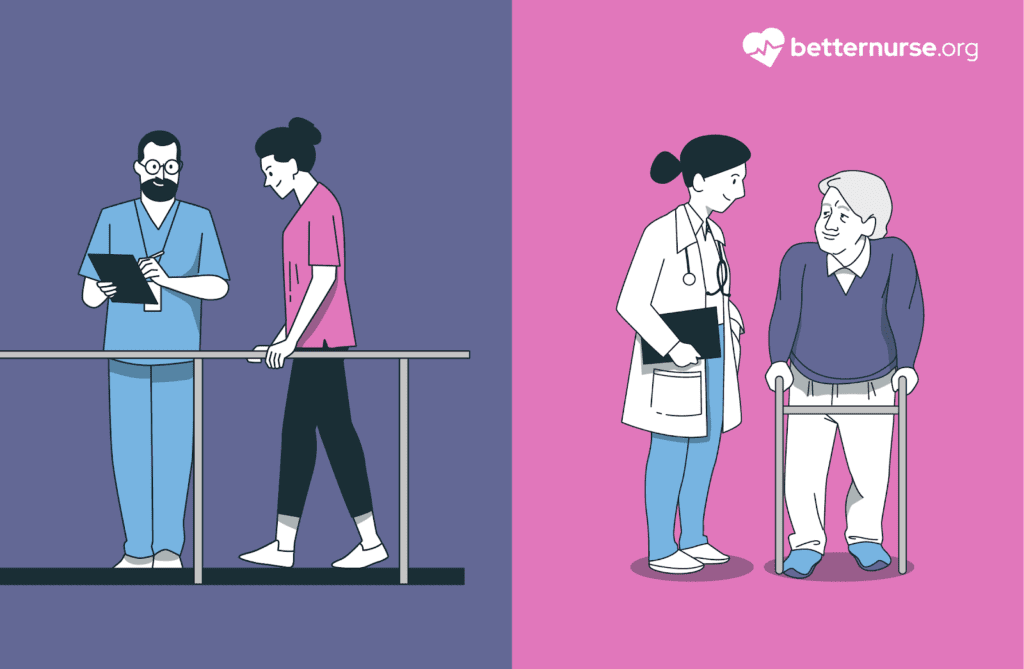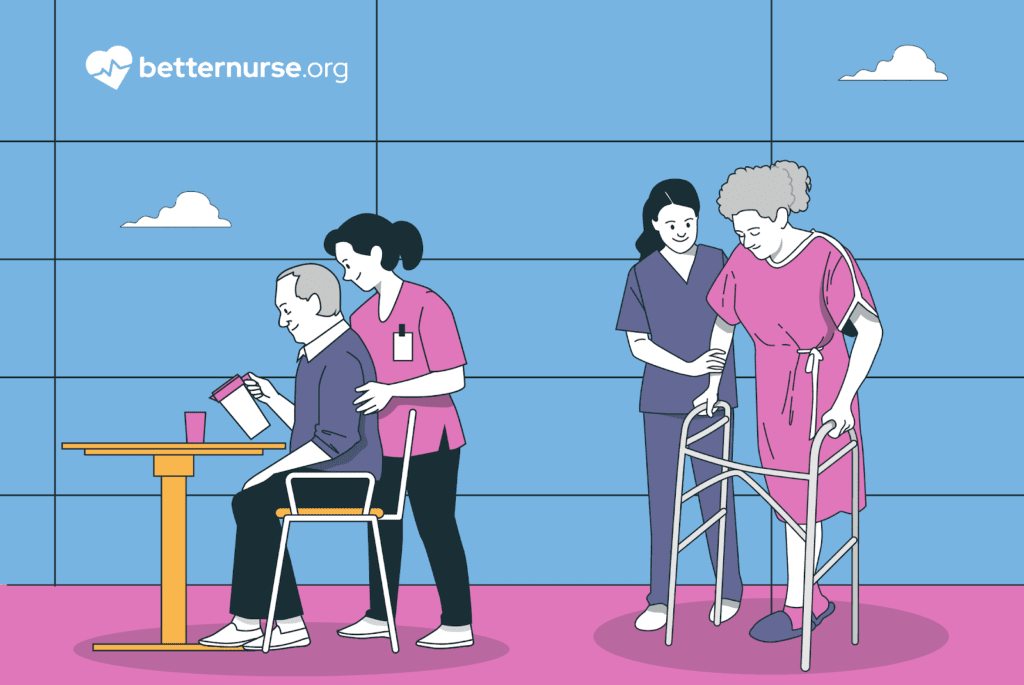Skilled nursing facilities are healthcare centers that provide around-the-clock medical supervision and rehabilitation services for individuals with complex medical conditions.

Understanding Skilled Nursing Facilities
As people age or face sickness, they may need specialized assistance with daily tasks not provided at home. This is where a skilled nursing facility (SNF) comes into the picture. Understanding SNFs will help you make informed decisions about healthcare needs. However, navigating the world of SNFs can be overwhelming for patients and their families. In this guide, we’ll provide an overview of what a skilled nursing facility is, what services they offer, and how to choose the right facility for your needs.
Table of contents
The Takeaway
Skilled nursing facilities are like lighthouses in the stormy seas of life, guiding and sheltering those in need with a beacon of hope and unwavering care.

What Is a Skilled Nursing Facility?
Skilled nursing is a type of healthcare service typically provided during a limited period of time, often after a hospital stay, to assist patients in recovering from a sickness or injury. The goal of this nursing is to help patients regain their physical abilities and self-sufficiency so they can return to their normal daily activities.
Skilled nursing may also be provided to patients with chronic conditions, such as diabetes or heart disease, to help them learn how to manage their health and prevent further health complications.
The main focus of skilled nursing is to provide high-quality care tailored to each patient’s individual needs. The best-skilled nursing programs take a holistic approach to care, which means that they consider the patient’s physical, emotional, and social needs when developing a care plan. This type of care is essential to help patients achieve their recovery goals and maintain their health over the long term.
Skilled nursing professionals offer a wide range of services, such as:
- medication management,
- wound care,
- physical therapy,
- occupational therapy, and
- speech therapy.
In addition to these services, the nursing staff may also provide support and education to help patients manage their health conditions and prevent complications.
Skilled nursing is a vital component of the healthcare system, providing essential services to patients who require short-term rehabilitation or ongoing care. The best-skilled nursing programs offer a comprehensive and integrated approach.
Who Is a Skilled Nursing Facility For?
These institutions offer a safe and secure environment along with medical and social services to individuals who demand care beyond what can be provided at home or in other healthcare setups. People who reside in SNFs are looked after by their physician or the medical director of the facilities.
A unique care plan, which involves the input of the physician, resident (or their representative), and facility staff, must be developed for each resident. Skilled nursing facilities are intended to care for patients who cannot receive the appropriate care at home or are currently in a less intensive care setting, such as a residential care facility or an assisted living community.
Individuals of all ages can benefit from SNFs. Typically, patients of SNFs need specialized medical care and treatment, such as intravenous therapy, wound care, rehabilitation, and respiratory therapy. They also assist patients who demand help dressing, bathing, and eating.
What Services Are Offered in These Facilities?
Health professionals at SNFs deliver a range of medical services to their patients, including the following:
- Skilled nursing care: It includes 24-hour medical supervision by licensed nurses and other medical professionals to monitor the patient’s condition.
- Rehabilitation services: They include physical therapy, speech therapy, occupational therapy, and respiratory therapy.
- Medication management: It ensures patients receive their medications as prescribed and identifies and manages potential drug interactions.
- Wound care services: It is for patients with chronic wounds or those recovering from surgery.
- Intravenous (IV) therapy: It is for patients who require medications or fluids delivered directly into their veins.
- Dietary and nutrition counseling and specialized diets: It is for patients with specific medical conditions.
- Social and recreational activities: They promote mental and emotional well-being.
- Mental health services: They include counseling and therapy for patients requiring additional support.
- Hospice and palliative care: It is for patients suffering from terminal illnesses or nearing the end of life.
Skilled Nursing Facilities vs. Nursing Homes: What’s the Difference?
The terms “skilled nursing facilities” and “nursing homes” are frequently used interchangeably; however, the two differ.
A nursing home typically provides long-term care for patients who need assistance with daily life activities and medical care for chronic conditions or disabilities. Nursing homes may also offer social activities and other amenities to residents.
On the other hand, skilled nursing facilities offer higher levels of medical care than nursing homes. They are designed for individuals who require 24-hour medical supervision, complex medical treatments, or rehabilitation services after a hospital stay. SNFs may have licensed nurses, physical therapists, occupational therapists, and other healthcare professionals on staff to provide specialized care.
How Much Does a Skilled Nursing Facility Cost?
Staying in SNFs comes with a cost that varies significantly, depending on several factors like location, the cost of living, and the local market for healthcare services. Other factors that can influence the cost of SNF care include the level of care required and the amenities provided by the facility.
In the United States, the average annual cost of a semi-private room in an SNF is around $94,900, while a private room can cost up to $108,405 annually. However, additional services, like medication management or physical therapy, may not be included in the mentioned prices and can significantly increase the overall cost.
Therefore, it’s essential to discuss the specific services that will be provided and the expenses associated with the SNF staff. Additionally, not all health insurance plans cover the cost of skilled nursing care. For those that do, coverage may be limited, which means that some out-of-pocket expenses may still be incurred. Understanding the coverage provided by your insurance plan is essential to avoid unexpected costs.
Wrapping Up
SNFs give specialized care to patients who demand continuous medical supervision and care from qualified healthcare specialists. Knowing the services that skilled nursing facilities provide and the requirements to qualify for skilled care will allow you to make the right decisions and consequently receive the appropriate care for you or your family member.

Nurse Luke is a CRNA who specializes in Nursing content and still enjoys a very busy career with Locum, Per Diem and Travel nursing in the greater midwest. He has over 25 years of experience in the healthcare field and received his CRNA masters degree from the Mayo Clinic School of Healthcare. He is passionate about helping nurses explore the options of becoming a travel nurse as well as spending time with his Family.



